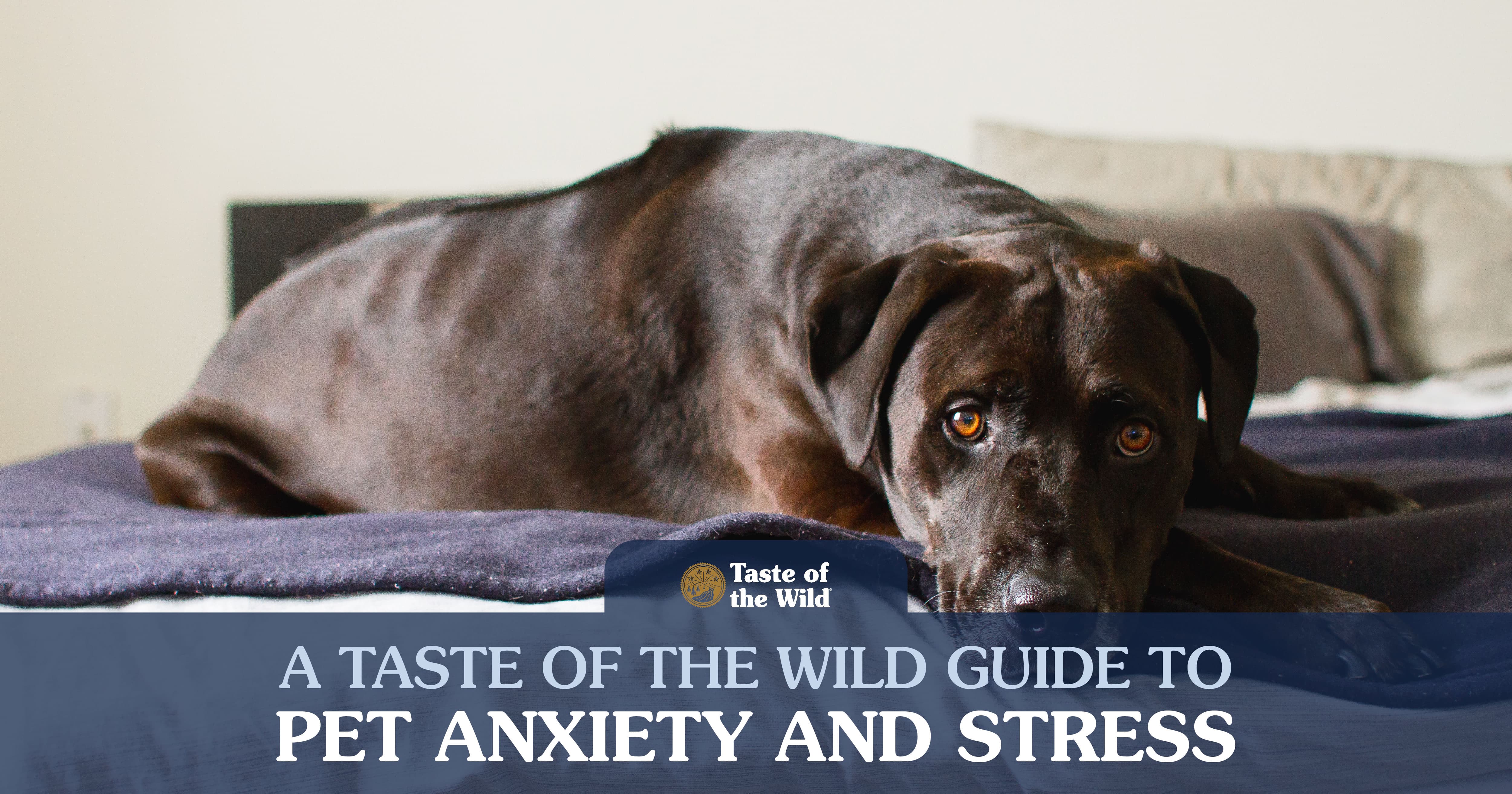
There aren’t many issues that are more upsetting to pet owners than pet anxiety, especially when it comes to anxious dogs. An anxious dog can lead to destructive behavior, health conditions or repetitive or compulsive behaviors that can have major ramifications on your pet’s life.
Types of Anxiety
A dog’s anxiety or stress can come from many sources, but there are three major causes.
Separation Anxiety
Dog anxiety caused by separation from their pet parents or other companions has always been an issue, but it might be exacerbated by the recent COVID years, as many pets got used to being around their owners all the time. Sudden time apart can lead to destructive behavior in anxious dogs.
Loud Noises
If you’ve ever seen how thunder can cause anxiety in dogs, you immediately understand how loud noises like storms, fireworks or gunshots can cause pet owners to cringe. Not all dogs are impacted by these noises, but an anxious dog might need prescribed medication in the worst cases.
Changes in environment or routine
Certain dog breeds are more chill than others when it comes to anxiety, but most are impacted by lifestyle changes in some way. Different bed or wake times, other changes in sleeping habits, new items in a dog’s environment — they can all trigger anxiety.
Signs and Symptoms of Anxiety in Dogs
Dog body language is a prime indicator of stress and anxiety in dogs, but it’s far from the only indicator. Depending on how well you know your dog, you can read these signs to determine how they’re feeling, mentally. Other things to look for:
- Barking or howling
- Panting or pacing
- Digging
- Escaping the yard
- Destroying furniture
Any sudden addition of these behaviors might be an indication that your dog may need to relieve stress or be taken out of a stressful situation. Dog anxiety can be hard to read, but if you know these signs you can get with your veterinarian to plan to treat anxiety in your dog.
For more details on specific situations or types of dog anxiety or stress, read on!
Separation Anxiety in Pets
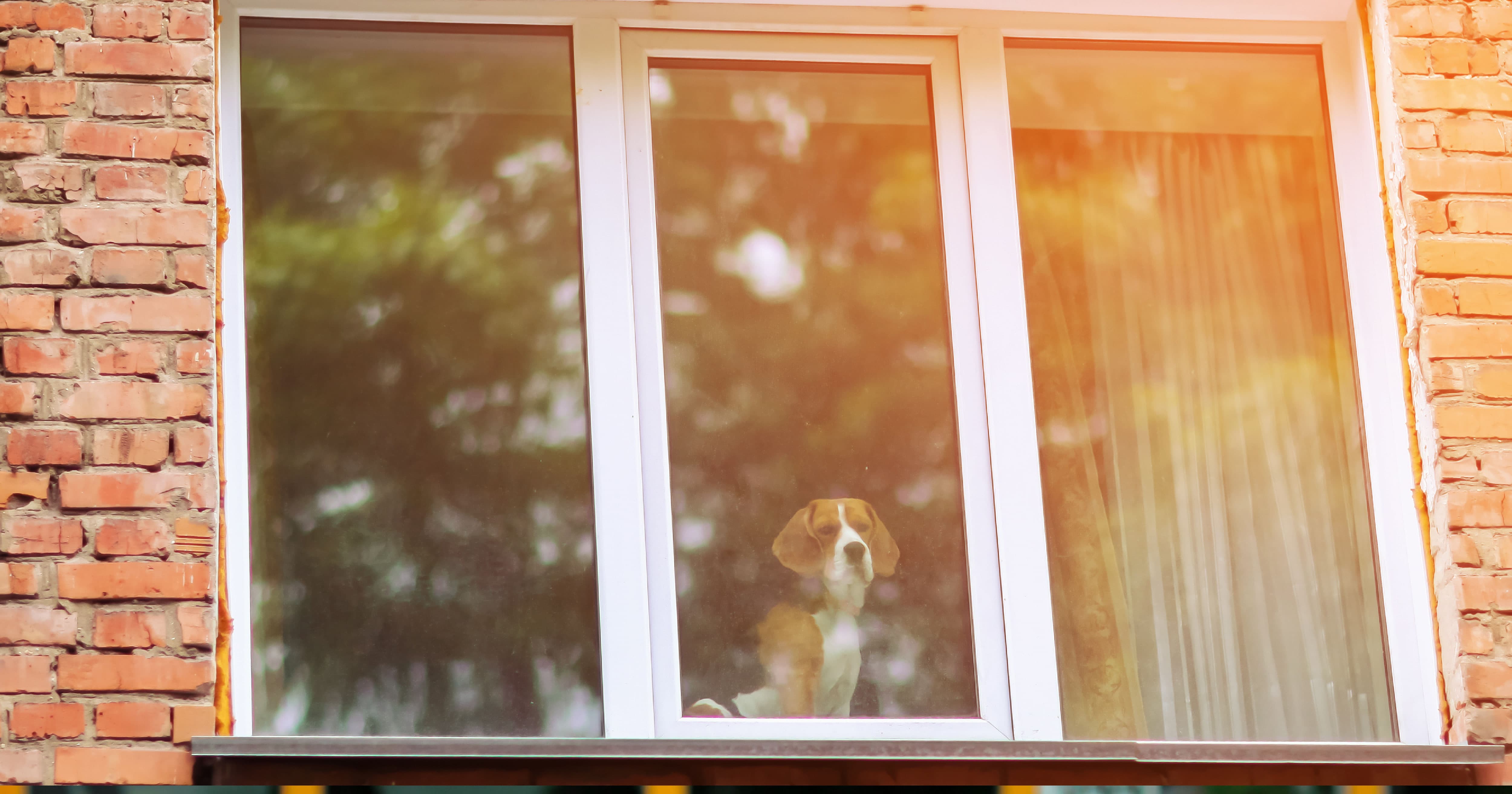
Do the Sunday Scaries get you down, knowing that work on Monday is coming? Your pet may hate it even more than you. Up to 17 percent of dogs suffer from separation anxiety. That time spent away from your pet can be extremely stressful, almost like a traumatic event. Extended anxiety in pets can cause health issues or behavior problems.
Knowing that a pet is stressed can be distressing for an owner, too. Your best option is to work with your veterinarian or a veterinary behavior specialist to help your pet overcome his or her fear.
READ MORE ABOUT SEPARATION ANXIETY IN PETS
Back to School Can Be Stressful for Pets

If your pet and the kids have been inseparable all summer, that first day of school can be a rude awakening to the pets, especially if they’re now all alone in the house.
Helping a dog cope with the sudden change in play and snuggle time can be tricky, but with some extra chew toys and other minor changes, you should be able to ease your dog’s symptoms.
READ MORE ABOUT PET STRESS AND BACK TO SCHOOL
CALMING PET STRESS AND PET ANXIETY WHEN THE THUNDER ROLLS
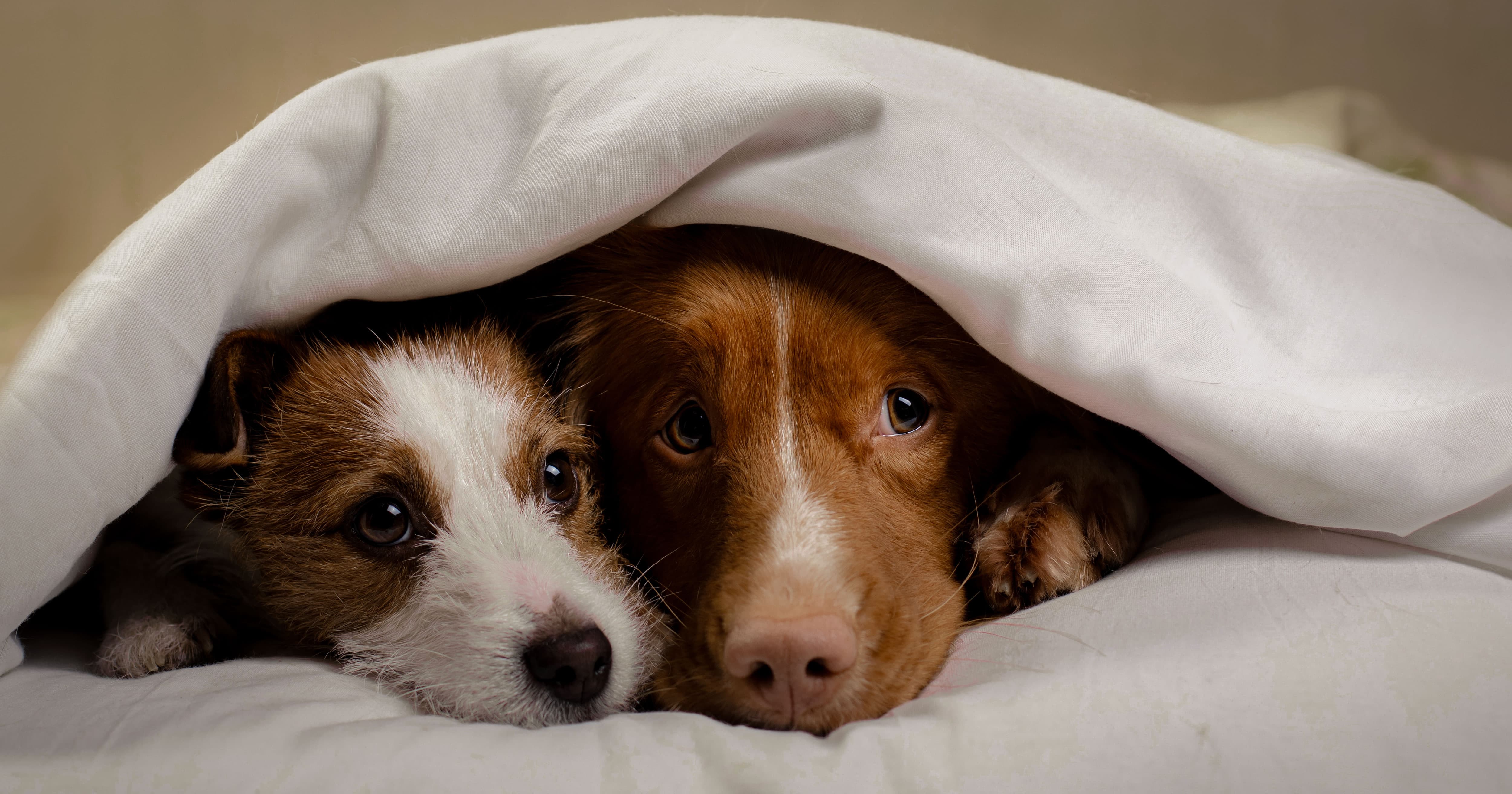
For some dogs, the sound of thunder can cause a major anxiety disorder. But it might not just be the noise; it can be everything surrounding the storm. Or it might not be the storm at all! It’s important to work with your veterinarian to determine whether your dog is suffering from noise anxiety, storm anxiety, separation anxiety or a combination of stresses, so you can find the right treatment to help your pet. If your dog’s anxiety is so extreme that they are hurting themselves or destroying property, your veterinarian may recommend prescription medications to help.
READ MORE ABOUT YOUR PET AND THUNDER STORMS
De-Stressing That Trip to the Veterinarian
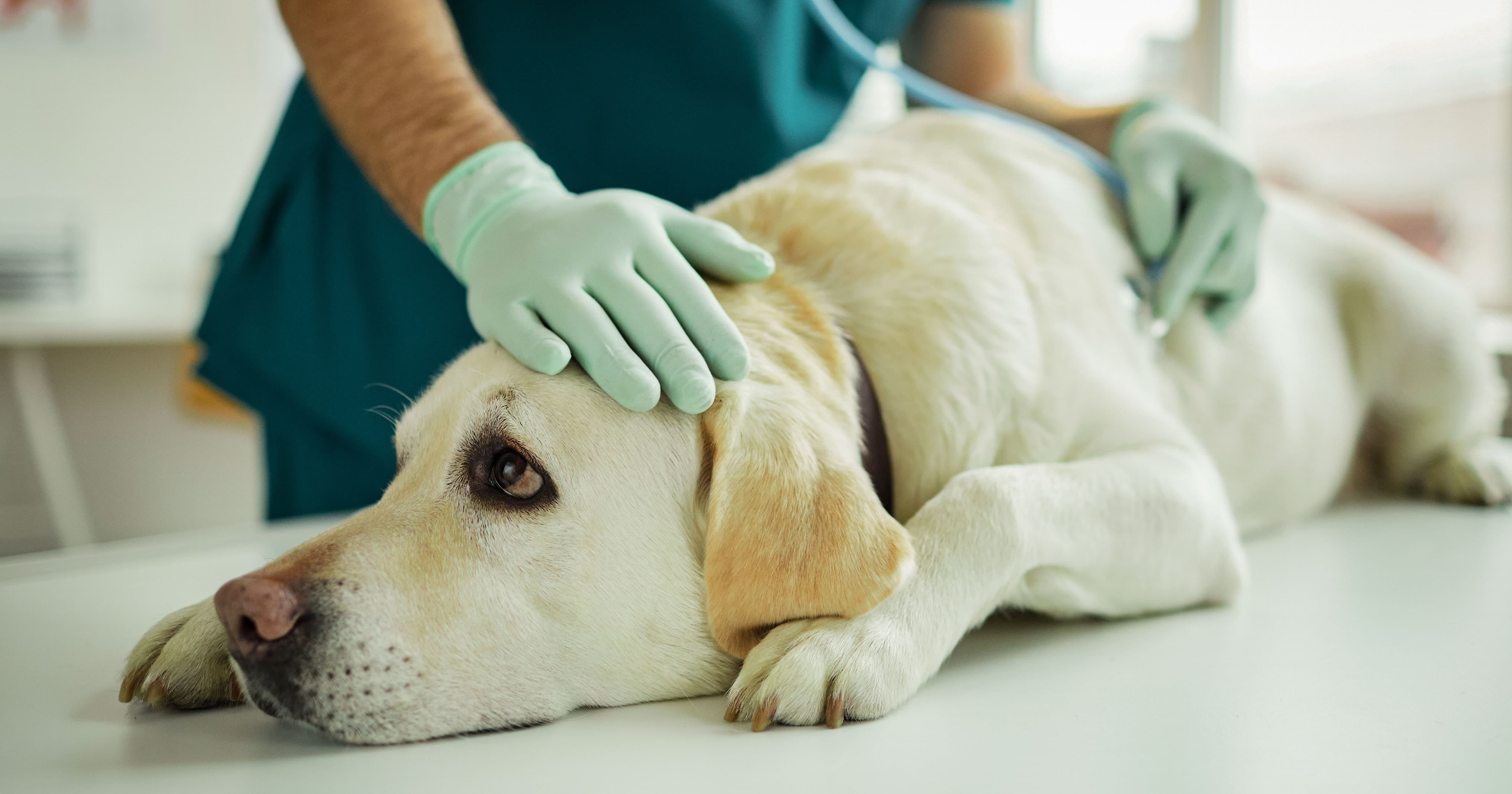
We all hate going to the doctor, but did you know dogs can feel that same anxiety when going to the veterinarian? Dogs may not speak the same language as us, but they can pick up on shifts in your mood, and they tend to know when they’re being rounded up to go somewhere.
READ MORE ABOUT STRESS AND THE VET
Puppies and Adoption Stress
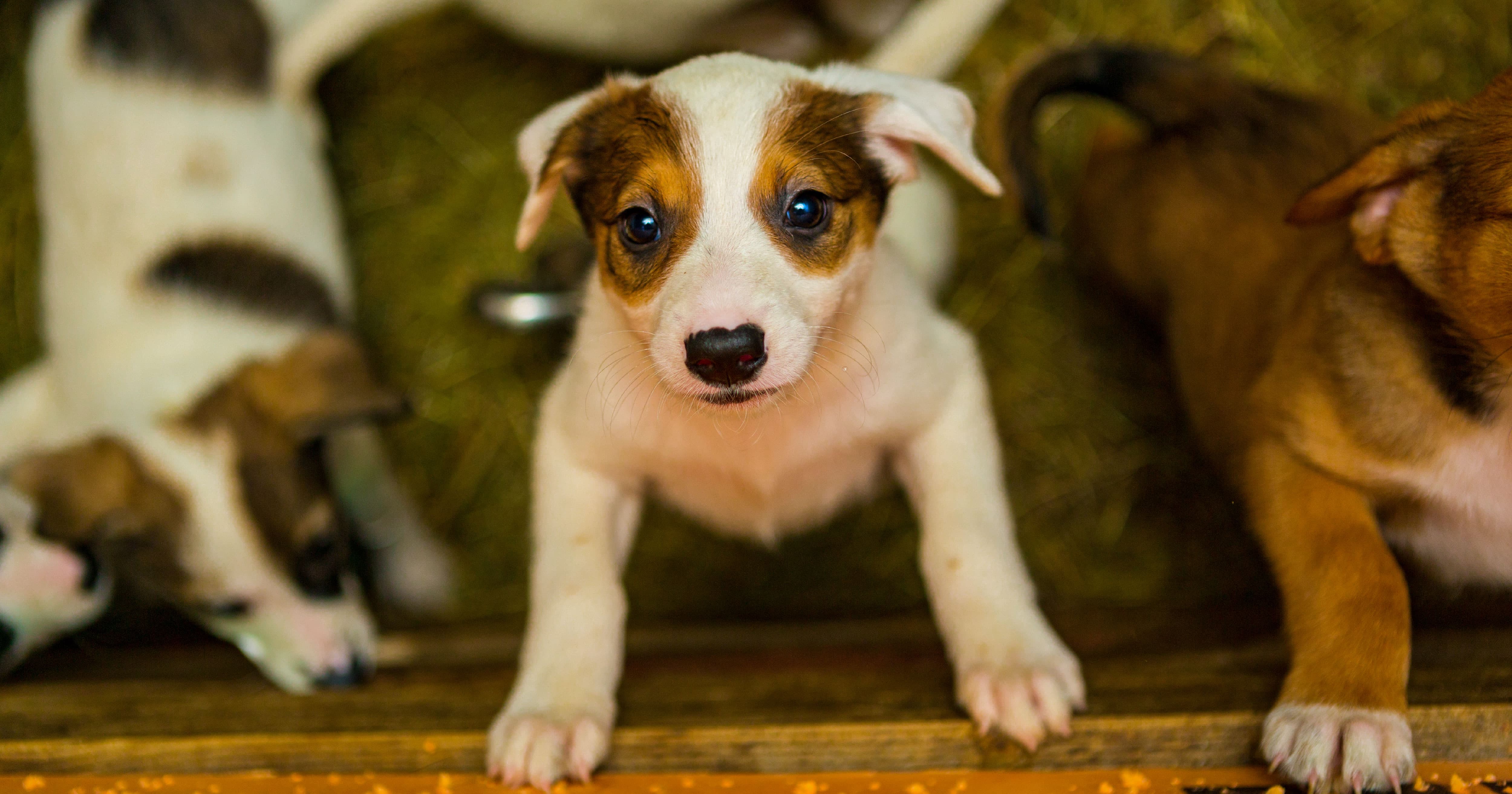
That puppy might be all happy and wiggily in the window, but the adoption process can be hard on a young pup! Here are all the ways a pup’s anxiety can be exacerbated by the adoption process, as well as a few ways you can help your puppy with a stress-free transition to a new home.
READ MORE ABOUT DE-STRESSING THE PUPPY ADOPTION PROCESS
Dog Anxiety Is Real But Can Be Helped!
Dogs are wonderful creatures who somehow relieve the constant pressure that we humans face on a day-to-day basis. But dogs experience many of the same anxiety issues that we do. It doesn’t take much effort to reduce anxiety in dogs. Luckily, the root cause and many symptoms of much dog anxiety can be handled without much difficulty, and your dog will be back to their silly, wiggly self in no time.
The information in this blog has been developed with our veterinarian and is designed to help educate pet parents. If you have questions or concerns about your pet's health or nutrition, please talk with your veterinarian.

